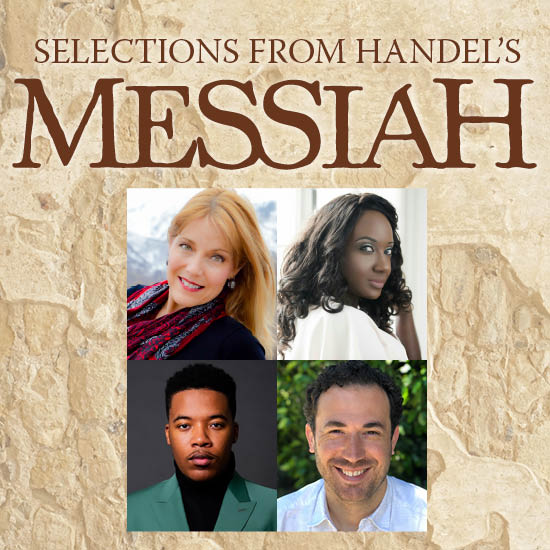Selections from
Handel’s Messiah
April 6-7, 2024
Program Notes: Messiah
In July 1741 librettist Charles Jennens wrote to his friend Edward Holdsworth:
Handel says he will do nothing next Winter, but I hope I shall perswade him to set another Scripture Collection I have made for him, & perform it for his own Benefit in Passion Week. I hope he will lay out his whole Genius & Skill upon it, that the Composition may excell all his former Compositions, as the Subject excells every other Subject. The Subject is Messiah.
Jennens did indeed manage to “perswade” his eminent friend and colleague, but victory was tempered with disappointment, as we hear in another letter from December 1741:
I heard with great pleasure at my arrival in Town, that Handel had set the Oratorio of Messiah; but it was some mortification to me to hear that instead of performing it here he was gone to Ireland with it. However, I hope we shall hear it when he comes back.
Surprising though it may seem, Handel did indeed compose Messiah for a Dublin premiere. He started composing the oratorio on August 22, 1742 and completed the manuscript on September 14. That’s 24 days. Such speed has typically left commentators nonplussed: how could anybody write a work of Messiah’s length in such an incredibly short time?
The answer is far simpler than one might expect, and has nothing to do with romantic notions of divine inspiration, sleep deprivation, starvation, or tearstained manuscripts. Handel always composed quickly; speed is a basic survival skill for any hardworking theatrical composer, and Handel was nothing if not a survivor. He was a past master at turning out yards upon yards of finished manuscript on schedule and to specification, so three and a half weeks from start to finish, while impressive, is quite believable.
For his Dublin series, Handel planned an ambitious program of recent hits as well as old favorites—L’Allegro, Acis and Galatea, Esther, and Alexander’s Feast. Then came Messiah on Tuesday, April 13, 1742, and it was a decided and definite hit. The London premiere finally came on March 23, 1743. Whether it was successful remains uncertain, although the Earl of Shaftesbury states firmly that Messiah “was but indifferently relish’d.”
Subsequent outings were few and far between during the 1740s. Then fortune suddenly smiled when Handel arranged a May 1, 1750 performance at London’s Foundling Hospital, as a dedication for the new organ he had donated. The association with charity proved to be the oratorio’s turning point, as sellout crowds cheered. Handel would produce Messiah at both Covent Garden and the Foundling Hospital on a yearly basis for the rest of his life; he died on April 14, 1759 in the interval between the April and May concerts. By then, Messiah had become a cherished fixture of the Easter season; only during the 19th century did it become traditional Christmas fare.
And thus it thrives—in churches, community centers, concert halls, and high school gymnasiums; on records, on the radio, in movies, on TV, even on YouTube. Eighteenth-century historian Charles Burney recounts an incident at the Dublin premiere in which orchestra leader Matthew Dubourg became hopelessly lost during a solo in one of the arias. Somehow he stumbled back to the proper key, at which point Handel bellowed out lustily: “You are welcome home, Mr. Dubourg!”
You are welcome home. That’s the key to Messiah—beloved, reassuring, and familiar, it offers living proof that great art is for all people, in all times, and in all places. The Roubiliac statue on Handel’s tomb in Westminster Abbey shows him holding the score to Messiah. He needs no other epitaph.

